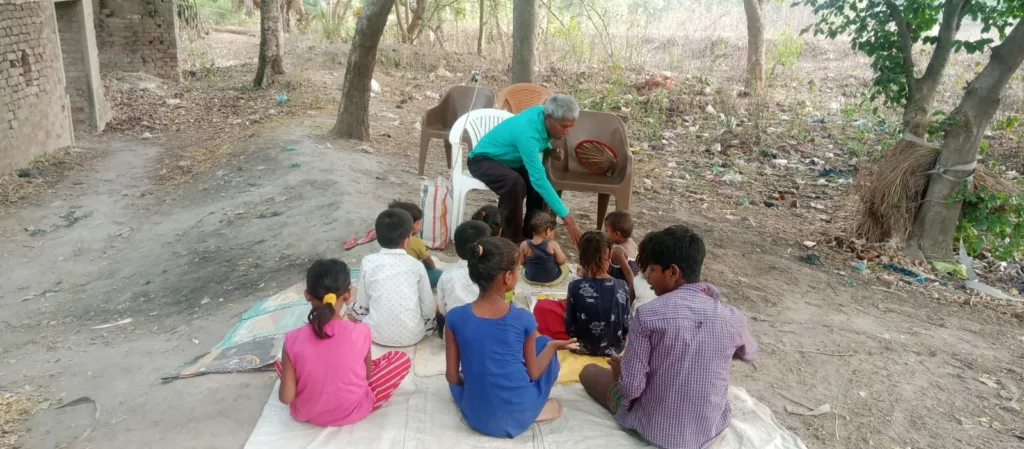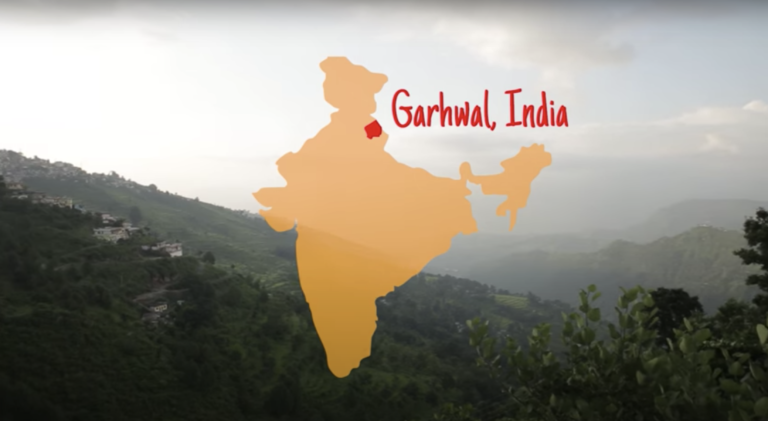Words of Hope tutoring centers in India are setting children up for educational success and demonstrating the love of Christ in tangible ways.
A System of Support
Children who live in impoverished regions of northern India do not get a proper education. Many do not attend school at all.
The quality of education in India varies widely from state to state. Where wealthier people live, the schools are able to employ qualified teachers. But in some of the impoverished northern Indian states where Words of Hope works, government schools are severely underfunded, and the quality of education is poor.
The Words of Hope team in India has pioneered an after school tutoring program specifically designed to benefit children in these situations.
At Words of Hope tutoring centers across India, teachers are working to help children get back on track. They provide instruction in math, literacy, science, and more—giving extra help where needed, and encouraging children to explore areas of special interest and skill. For children who have never received formal education before, the teachers bring students up to speed with reading and math so that they can qualify for enrollment in a government school as well.
A Community Development Worker
Kiran is one of Words of Hope’s community development workers. He is in charge of a tutoring center. He lives in a small town in the far north of India, near the border with Bhutan. He is 30 years old, has been to seminary, and is an ordained pastor.
The community around Kiran is made up mostly of Adivasi people. Adivasi is a collective term used to refer to tribal people groups who were the original inhabitants of the land. Such groups are still relatively isolated from the rest of Indian society. Their religion is a mixture of Hinduism and Animism. They are the least educated people group in India, with high drop-out rates among students, and literacy rates below 50% for the general population.
“Adivasis worship mountains, trees, and rivers,” Kiran explains. “So, basically, they don’t have any God, but they have a holistic mind of God. That is, you know, they serve water and worship all those things.”
In the midst of this Adivasi community, Kiran began enrolling students in the tutoring center for Words of Hope. For the first two years, Kiran did not include any gospel content in his teaching, but gradually, he has introduced elements of his faith to his students, inviting them to memorize the Lord’s prayer and sing gospel songs. Now, every Saturday the class session is focused entirely on Biblical content, and parents are invited to attend along with their children. Many do!

Kiran’s tutoring center works with students six days a week for two hours each day after school. Around 40 students are regularly in attendance, varying in age from 3 to 16 years old. Kiran works with several volunteer teachers to divide the children into age groups for instruction time.
In addition to academic tutoring and Biblical introductions, Kiran provides service opportunities for the students to go out and help in their community. These service projects have earned a good reputation for the center, and have led to increasing numbers of parents enrolling their children for the free services.
A Family Comes to Faith
Kiran explains that one of the most common struggles in the Adivasi community is alcoholism. A cultural practice of brewing rice beer leads to problems for many families.
“If there are 100 families in one area,” says Kiran, “there are at least 50 families struggling with alcoholism. This is part of their tribal culture. They have this drinking, but then many get into excessive drinking. And when they drink, they start abusing their family, their kids, and their wives.”
This sad cycle of poverty, intoxication, and abuse was the experience of a wife and mother named Nila. Nila had two school-aged children, but her often drunk husband refused to allow them to attend school.
Desperate for her children to receive the education she knew they needed, Nila escaped with her children and went to live at her sister’s house. From there, the children began attending school and Kiran’s after school tutoring center.
“The kids shared with us how their family was getting divided,” says Kiran. “How they were struggling, and how they had to run away from their father and stay with their cousins so they could go to school. But the two kids never stopped coming to the tutoring center!”
Nila had opportunities to talk to her children’s tutoring center teachers. She told them that she had noticed not just academic improvements, but positive behavioral changes as well.
“That opened a door for us to go and talk with her regarding the love of God for her family,” says Kiran. “And she said that she was interested in attending our church.”
Kiran also pastors a church plant in his village. It is made up exclusively of families who have come to faith through their children being enrolled at the Words of Hope tutoring center. “As time went by, a period of one or two months, Nila accepted Christ as her Lord and Savior,” Kiran says. “She and her kids are now part of our church.”
Your Part of the Story
More than 30 such Words of Hope tutoring centers are already in operation across India. These centers are giving children the education tools they need to break out of crippling poverty cycles. And as they do so, families are coming to believe in the God who cares, and who reaches out to meet them in these places.
“Thank you so much for supporting us,” says Kiran. “Thank you so much for praying. Because of your prayers, we’re able to reach out. We are able to work even more.”
Your continued support of Words of Hope makes such holistic outreach possible. Already Kiran’s tutoring center has reached capacity. People in nearby villages who hear of the success of the tutoring programs are clamoring for centers to begin near them as well. Your donations pave the way for continued growth.
“It’s quite a challenging place here,” Kiran continues. “But God is working, and we are really hopeful. We are really praying to see more people coming to faith through this tutoring center.”


